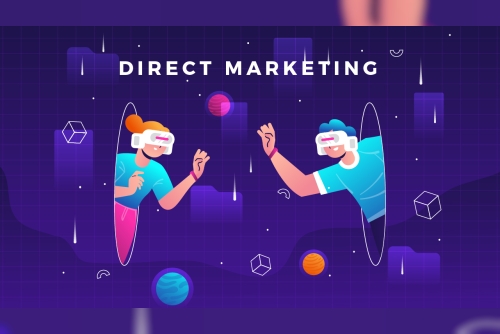In today’s B2B marketing environment, understanding customer preferences while maintaining trust and compliance is essential. One of the most effective ways to achieve this is through Zero-Party Data. Unlike third-party or inferred data, Zero-Party Data is voluntarily shared by customers, making it highly reliable and actionable. This consent-driven approach ensures that marketing strategies are both effective and aligned with privacy regulations.
Benefits of Zero-Party Data for MarketersZero-Party Data provides marketers with clear, accurate insights into customer needs and preferences. It enables personalized marketing campaigns that resonate with target accounts, improving engagement and conversion rates. Since the data is voluntarily shared, it also strengthens trust and credibility, essential elements in B2B relationships where decisions involve multiple stakeholders.
Building Trust Through TransparencyTrust is a critical factor in long-term B2B relationships. When companies request information transparently and explain its intended use, customers are more likely to engage and share meaningful insights. This transparency fosters confidence and strengthens the overall relationship between businesses and their clients.
Methods for Collecting Zero-Party DataB2B marketers can collect Zero-Party Data through various interactive methods, such as surveys, quizzes, preference centers, and registration forms. Offering clear value in return, like personalized insights, exclusive content, or early access to resources, ensures that customers feel their participation is worthwhile. Voluntary participation increases the quality and accuracy of the data collected.
Personalization and Account-Based MarketingZero-Party Data enhances both personalization and account-based marketing initiatives. By knowing customer preferences and intentions, marketers can tailor communications, offers, and recommendations to specific accounts. This precise targeting reduces wasted effort, improves engagement, and maximizes the ROI of marketing campaigns.
Ensuring Compliance and PrivacyOne of the main advantages of Zero-Party Data is its alignment with privacy regulations. Since the information is voluntarily shared and collected with consent, companies can comply with GDPR, CCPA, and other privacy laws more easily. This consent-based approach reduces the risks associated with third-party data and reinforces ethical marketing practices.
Leveraging Predictive AnalyticsBy analyzing Zero-Party Data, B2B companies can gain predictive insights into customer behavior and preferences. This allows marketers to anticipate needs, identify upselling opportunities, and optimize offerings. When integrated with CRM and analytics tools, Zero-Party Data becomes a strategic asset for decision-making and business growth.
Reducing Dependence on Third-Party DataThe decline of third-party cookies and tightening data regulations have made reliance on external data increasingly risky. Zero-Party Data provides a sustainable alternative, ensuring that B2B marketing campaigns remain accurate, compliant, and effective even in a privacy-first digital environment.
Developing a Comprehensive Data StrategyA holistic approach to Zero-Party Data includes collection, segmentation, analysis, and activation. Using marketing automation platforms and AI-driven tools allows marketers to deliver personalized content efficiently, improving engagement and fostering trust. A well-structured strategy ensures maximum impact from every data point collected.
Educating Teams and ClientsEducation plays a key role in successful Zero-Party Data utilization. Internal teams and clients should understand how the data is collected, stored, and applied ethically. Highlighting benefits such as improved personalization, more relevant communication, and enhanced customer experiences strengthens trust and encourages data sharing.
Integrating Zero-Party Data Across PlatformsIntegrating Zero-Party Data into CRM, marketing automation, and analytics platforms provides a comprehensive view of customer accounts. This enables accurate segmentation, targeted campaigns, and actionable insights, ensuring consistency in marketing efforts and compliance with privacy standards.
Embracing a Privacy-First FutureZero-Party Data represents the future of B2B marketing by placing trust, consent, and personalization at the forefront. Companies adopting these practices can deliver meaningful customer experiences, maintain regulatory compliance, and build stronger, long-term business relationships. Privacy-first, consent-driven data practices will define the next era of successful B2B marketing.
Read Full Article : https://acceligize.com/featured-blogs/zero-party-data-in-b2b-marketing-building-trust-compliance/
About Us : Acceligize is a global B2B demand generation and technology marketing company helping brands connect with qualified audiences through data-driven strategies. Founded in 2016, it delivers end-to-end lead generation, content syndication, and account-based marketing solutions powered by technology, creativity, and compliance.












